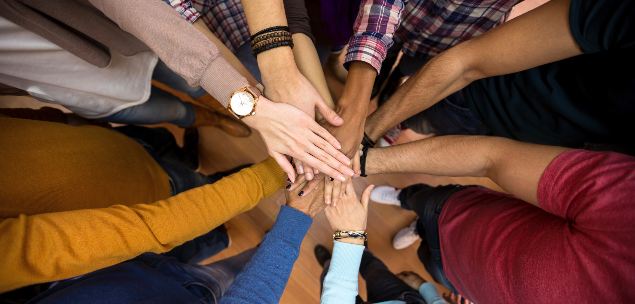Small businesses must ensure behaviours that fuel domestic violence are not tolerated at work, and that affected staff have access to appropriate support. Doing so will help facilitate a better outcome for individuals, while minimising the financial risks associated with productivity loss and low morale, according to domestic violence strategist and solutions consultant, Lisa McAdams.
McAdams spoke to Dynamic Business ahead of a gala dinner in Sydney on Wednesday, 10 August to raise funds for ‘The Dangerous Dance’, a new documentary feature film which seeks to engage women and men in a difficult conversation about the causes of domestic violence.
The film is being produced by FilmStretch, whose managing director, Claire Stretch, provided insight into the film’s core themes.
“For most women their wedding dance is a very public and symbolic culmination of a long held desire — the desire for love, family and fulfilment in a committed relationship,” Stretch said.
“But love can be blind. Particularly in the early, romance stage when human brains are flooded with a cocktail of dopamine, adrenaline and serotonin. When the honeymoon is over, however, the stark reality is that 1 in 4 Australian women’s dreams will crumble in the face of the harsh actuality of domestic abuse and family violence. And this not only affects their home life, but also their working life.”
Everyone is affected
McAdams, who will speak at the gala dinner as part of an expert panel, told Dynamic Business that it can be difficult for people experiencing domestic abuse to remain in the workplace when their employer fails to provide sufficient support. She explained that employers who fail to ensure a supportive and safe environment face increased absenteeism, lower morale and productivity loss amongst co-workers, and loss of key personnel, which gives rise to costs associated with – and time lost to – recruiting and training new staff.
“Small businesses can have a policy and procedure in place,” McAdams said. “Where this isn’t practical, businesses at least need something in their handbook or information pack saying they are supportive of employees dealing with domestic on a case by case basis. They can also make sure supervisory staff are aware of the helplines available to people.
“Ensuring people feel safe to disclose at work will help ensure a safe workplace for all and the continued employment of affected individuals, minimising the financial impact of domestic abuse. By talking openly about domestic violence and doing everything to eradicate workplace bullying and harassment, employers will create an environment where the behaviours are called out and not tolerated.”
McAdams identified steps small businesses can take to support employees affected by domestic violence, including those who are leaving the perpetrator:
- Allowing time off for court dates and appointments with doctors, therapists and lawyers.
- Accommodating a change of working hours, so they are not on a predictable routine.
- Making sure there is an up-to-date emergency contact.
- If they are customer focused, allowing them to take a back office role for a while.
“Whilst it is important to support someone going through or leaving a domestic violence relationship, it is also important to be aware of the individual’s boundaries and your boundaries as a business, as over-involvement could stand in the way of someone reaching out for the professional help they need, McAdams explained.
Further information
The gala dinner is being held on Wednesday, 10 August at Doltone House, Jones Bay Wharf from 7pm. Australian of the Year, David Morrison, will deliver a keynote speech. Following this, there will be an an expert panel on behaviour and culture change. Donations to the production budget of The Dangerous Dance are fully tax deductible

